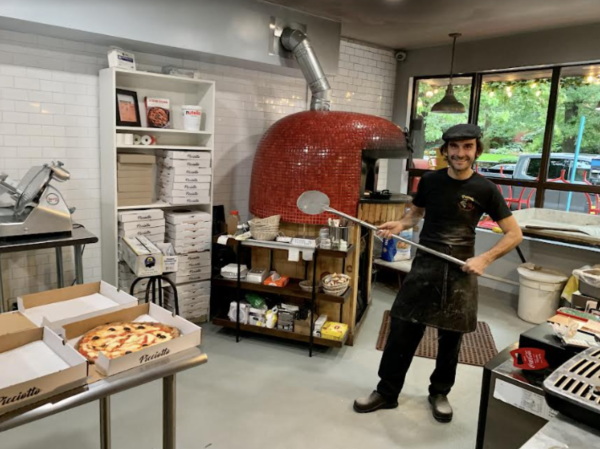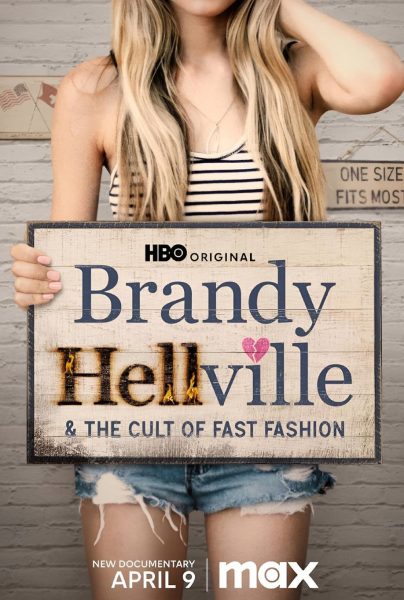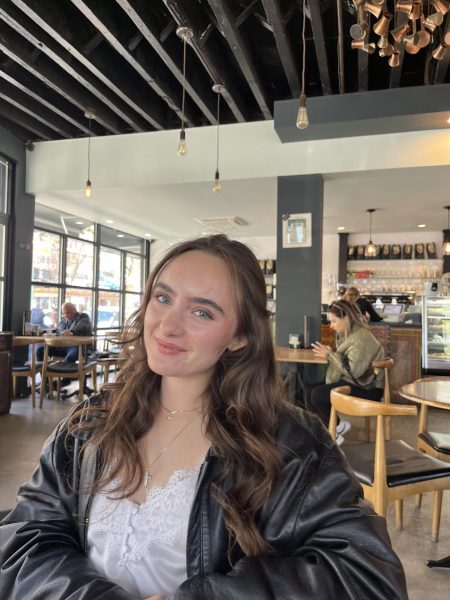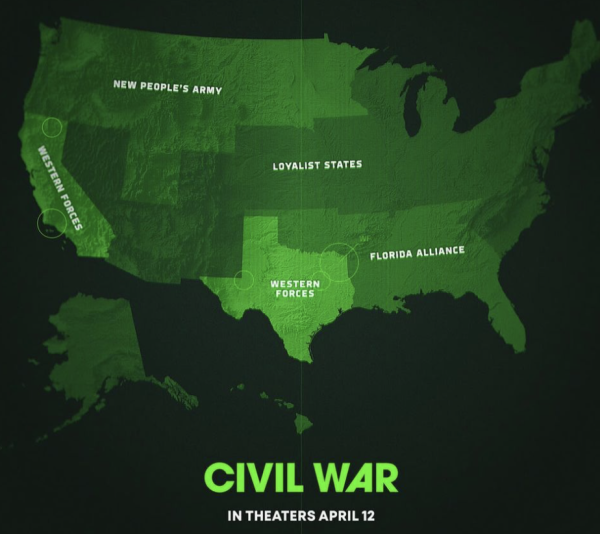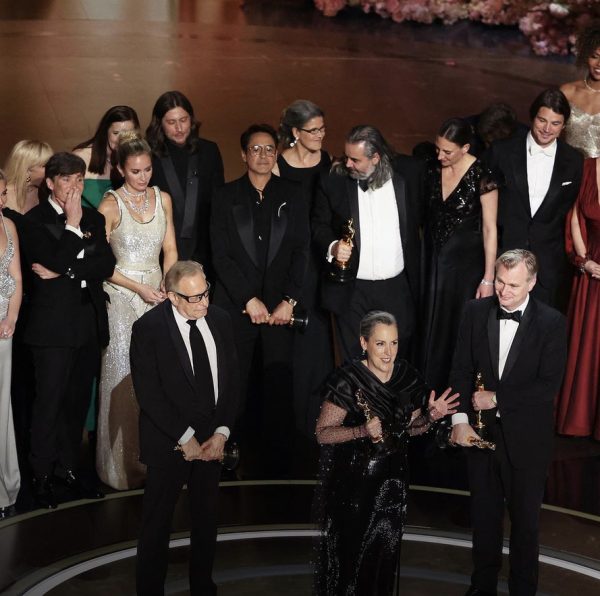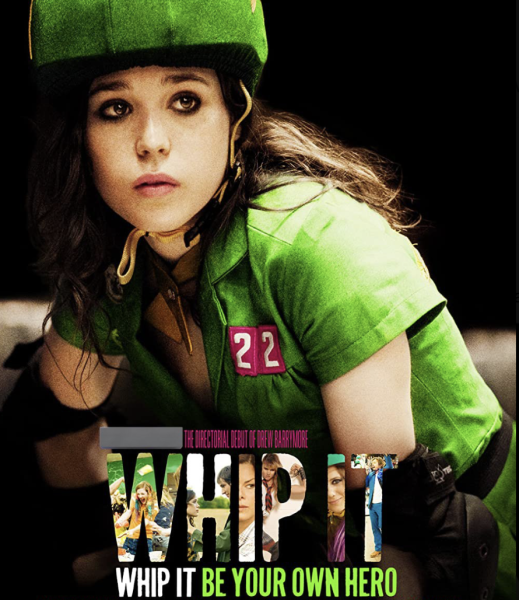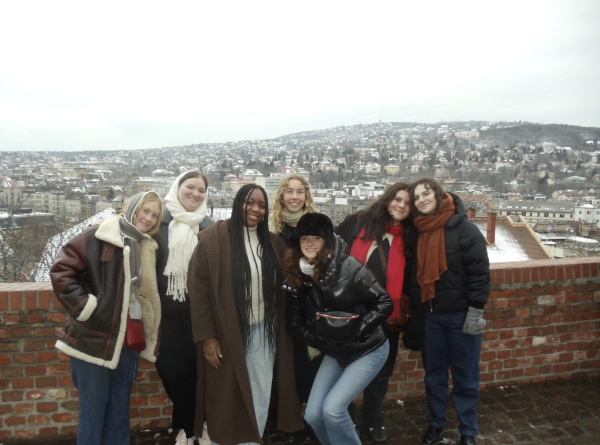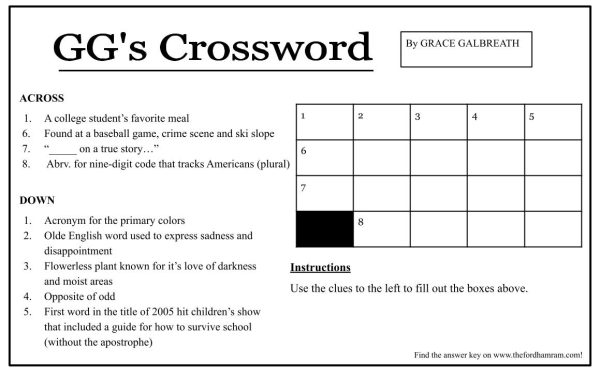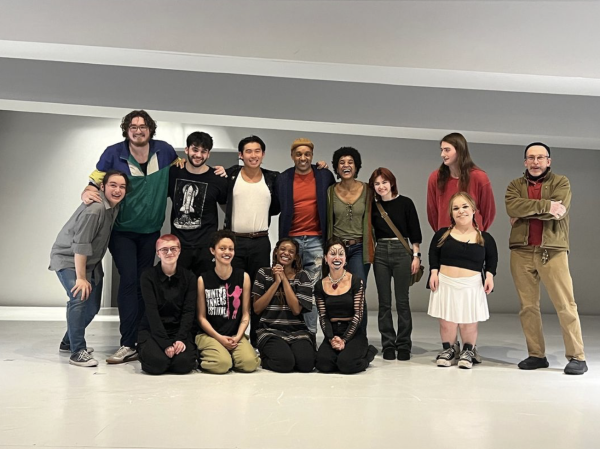“The Fallout” Explores a Heavy Side of Gen Z Experiences

“The Fallout” began streaming on HBO Max in January. (Courtesy of Twitter)
Content Warning: Movie contains topics of violence/school shootings, mental health issues and drug use.
Megan Park’s directorial debut “The Fallout” is a thought-provoking story that follows the destructive effects of a school shooting ,incorporating many aspects of growing up that are unique to Gen Z and today’s altered state of adolescence. The movie deals with mature concepts that many young adults have become familiar with in some capacity, especially regarding social media and mental health.
The teenage story has never been an easy one to tell, as it is a time in life flooded with heightened hormones and emotions regardless of the generation. However, because of the internet’s impact on society, with its massive influence and tendency to polarize, Gen Z faces a unique challenge in developing critical emotional skills. Although “The Fallout” is not the first piece of media to represent the hardships of growing up in a modern world saturated with content, it was one of the most realistic interpretations of modern adolescence I’ve seen in the media thus far.
There has been a noticeable increase in character-driven plotlines in recent years, with “do-nothing” movies like “Ladybird” rising in popularity. These kinds of movies allow for closer engagement with human emotions, and “The Fallout” uses this concept in a way that skillfully demonstrates some very complex emotional experiences. Rather than packing 90 minutes with one traumatic experience after another for entertainment, the movie opens with the climax event and continues by following the emotional journeys of the characters.
The skillful characterization in this movie is very beneficial in terms of accurate representation. Park avoids pushing the characters into tropes that are often present in coming-of-age movies; there are no mean girls, jocks nor emos. All of the teenagers represented in this movie are multi-faceted individuals that are not reduced to stereotypes that have previously defined the teenage experience in media. Park acknowledges the variety and fluidity of character traits that develop during adolescence, which is a major factor in how natural and real the relationships feel in this film.
This film spends a significant amount of time capturing small interactions that may seem insignificant to the initial issue in the story. However, these interactions allow us to connect more with the characters and identify with their emotional responses. The power of this movie lies within the details and Park uses these details to highlight the importance of compassion and relationships in dealing with traumatic experiences.
One aspect that makes this movie an accurate portrayal of the Gen Z perspective is how open it is to addressing issues previously thought of as taboo or personal. Because of how globally interconnected the world’s youth has become, the desire to destigmatize and have conversations about certain issues has become a defining factor of this generation.
Mental health is just one of the issues that the movie discusses. The main character, Vada, grapples with severe anxiety and PTSD following the shooting. Her gradual acceptance of speaking openly about her mental health in therapy and with her parents reflects a generational desire to outwardly discuss such topics. As the world makes important strides in understanding the nuances of mental health, “The Fallout” demonstrates how omnipresent these experiences are in the lives of teenagers today.
Another topic this movie successfully explores from the eyes of Gen Z is sexuality. This has always been a topic that often becomes prevalent during adolescence, but the way in which it affects teenagers is constantly changing. Coming of age in a time where rapid shifts are being made in the LGBTQ+ experience has generally created a more open and experimental concept of sexuality for teenagers. “The Fallout” incorporates the topic of sexuality organically, as it is used to showing how it can sometimes interact with traumatic experiences instead of just utilizing it for forced representation or queerbaiting.
Park also did an incredible job addressing the concept of trauma in instances of school shootings. She emphasizes just how fluctuating and widespread the effects and trauma of an experience like this can be. While some kids affected by the shooting immediately mobilized into political action, others, like Vada, struggle to comprehend their emotions. There is no one way to navigate trauma, and this movie makes a point of addressing this conversation. Additionally, Park integrates the experiences of loving someone through their trauma and how that in itself can be a difficult and confusing experience.
One cannot discuss the Gen Z teenage experience without addressing social media and the internet. “The Fallout” is very open about both the positive and negative aspects of the digital influence on teenagers. Vada is allowed to create more connections to cope with her trauma because of her phone. On the other hand, her trauma becomes more complicated and overbearing because of the pervasive nature of the internet. She is constantly reminded of her experiences she went through and her healing process is made much more difficult. Park also acknowledges how social media can warp teenagers’ perspective on trauma, as some may feel pressured to take on the weight of solving huge issues just because they have a farther reach in the world than past generations.
“The Fallout” is a very emotionally overwhelming movie, deliberately highlighting how increasingly polarized politics and the influence of social media have exacerbated the list of confusing emotions teenagers already take on. As someone born in 2003, the presence of gun violence in schools has been prevalent my entire life. This movie was an extremely realistic portrayal of how it feels to grow up alongside the repercussions of this violence. Park was ultimately successful in her goal to give voice to the unique experiences of Gen Z adolescents due to her careful and open discussion of such personal and meaningful issues.


